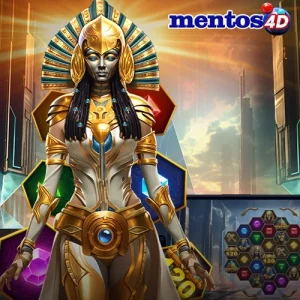Online gaming has transformed from a niche hobby into a global phenomenon, captivating millions of players across the globe. With the rapid advancement of technology and the widespread availability of high-speed internet, online gaming has become more accessible than ever before. This article delves into the evolution, impact, and future prospects of online gaming.
Evolution
The history of online gaming dates back to the late 1970s and early 1980s, wit games like MUD (Multi-User Dungeon) laying the groundwork for multiplayer online experiences. However, it was not until the 1990s that online gaming started gaining significant traction, with the rise of internet connectivity and the emergence of online gaming communities.
The advent of broadband internet in the early 2000s paved the Mentos 4d way for more sophisticated online gaming experiences. Massively Multiplayer Online Role-Playing Games (MMORPGs) such as World of Warcraft and RuneScape gained immense popularity, attracting millions of players worldwide.
The proliferation of online gaming platforms and digital distribution services, such as Steam, Xbox Live, and PlayStation Network, further fueled the growth of online gaming. These platforms provided players with easy access to a vast library of games and facilitated seamless multiplayer experiences.
Impact
The impact of online gaming extends beyond entertainment, influencing various aspects of society and culture:
- Social Interaction: Online gaming has become a social hub where players from different parts of the world come together to collaborate, compete, and forge friendships. Virtual communities within games serve as spaces for socializing and bonding.
- Economy: The online gaming industry has grown into a multi-billion-dollar market, encompassing game development, eSports, streaming, and in-game purchases. Virtual economies within games have also emerged, with players buying, selling, and trading virtual goods and currencies.
- Technology: Online gaming has driven technological advancements in areas such as graphics rendering, network infrastructure, and artificial intelligence. The demand for high-performance hardware and software has spurred innovation in the gaming industry and beyond.
- Cultural Influence: Online gaming has permeated popular culture, with references to games, characters, and memes appearing in movies, TV shows, and music. Gaming tournaments and events attract massive audiences, further solidifying gaming’s place in mainstream culture.
- Education and Skills Development: Contrary to popular belief, online gaming can foster cognitive skills such as problem-solving, strategic thinking, and teamwork. Some educational institutions have even integrated gaming into their curriculum to leverage its potential for learning and skill development.
Future Prospects
The future of online gaming looks promising, with several trends and developments shaping its trajectory:
- Virtual Reality (VR) and Augmented Reality (AR): The integration of VR and AR technologies promises to revolutionize online gaming by immersing players in fully immersive virtual worlds. Games like Half-Life: Alyx and Pokémon GO have already demonstrated the potential of these technologies.
- Cloud Gaming: The rise of cloud gaming services, such as Google Stadia and Microsoft xCloud, is poised to make gaming more accessible and platform-agnostic. Players can stream games directly from the cloud, eliminating the need for expensive hardware and allowing for seamless cross-platform play.
- Blockchain and NFTs: The adoption of blockchain technology and Non-Fungible Tokens (NFTs) has the potential to transform in-game economies and ownership rights. Players can truly own and trade digital assets within games, creating new opportunities for monetization and player empowerment.
- Artificial Intelligence: AI-driven algorithms are being utilized to enhance gaming experiences through features such as procedural generation, adaptive difficulty, and personalized content recommendations. AI-powered NPCs (Non-Player Characters) can also provide more realistic and dynamic interactions in virtual worlds.
In conclusion, online gaming has come a long way since its inception and continues to evolve at a rapid pace. Its impact on society, culture, and technology is undeniable, and the future holds even greater promise with advancements in virtual reality, cloud gaming, blockchain, and artificial intelligence. As online gaming continues to break barriers and push boundaries, it will undoubtedly remain a dominant force in the entertainment industry for years to come.